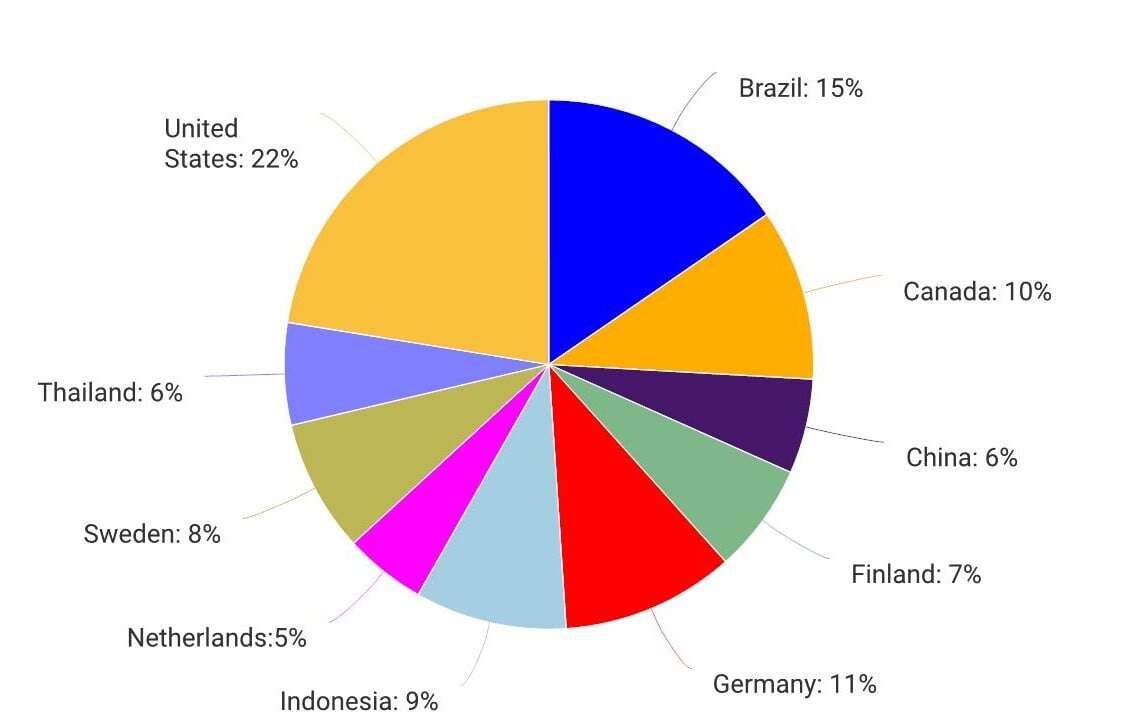3 min read
The Impact of Finnish Labor Strikes on Its Pulp and Paper Industry
ResourceWise
:
Mar 12, 2024 12:00:00 AM

On March 11, labor unions in Finland initiated a two-week strike that is poised to have a significant impact on the nation's export and import sectors, particularly in freight and rail transportation. With a considerable portion of industries relying on rail transport for their raw materials, intermediary products, and final goods, the effects of this strike are expected to be swiftly felt.
This recent development is part of a series of labor actions that were set off in October in response to the government's proposed reforms in the labor market and cuts to social welfare programs. The Confederation of Finnish Industries (EK) has estimated that these recent labor strikes could result in a substantial loss of 320 million euros ($350 million) in Finland's gross domestic product.
Despite this significant impact, the labor unions are undeterred in their opposition. Pledging commitment to a "long fight", they have even threatened to initiate further strike actions if the government fails to reconsider its decision.
SAK, the central organization of Finnish trade unions, has also reported possible repercussions for major industrial plants and distribution terminals due to the strikes. Given the escalating situation, the future appears to be a medley of uncertainty and tension.
As the dialogue between the government and the unions continues, the outcomes of these strikes will undoubtedly shape Finland's economic recovery and social landscape moving forward.
Effects on the Pulp and Paper Sector
The pulp and paper industry in Finland, a key player in the nation's economy, is facing significant vulnerabilities amidst the ongoing strikes. This sector, crucial for both local consumption and global trade, teeters on the edge of substantial disruption.
For example, Stora Enso said the strikes could delay customer deliveries due to the impact on ports and railway transport. "The strike may in some cases lead to curtailment of production or a temporary shutdown of individual lines or mills," a spokesperson recently stated. Consequently, buyers could see unexpected extra costs.
Meanwhile, UPM and Metsä Group are forced to close some of their mills due to the strike. UPM is currently shutting down operations at four of its mills - Kouvola, Rauma, Jämsänkoski, and the Kaukas pulp mill in Lappeenranta.
In the immediate future, it is certain that Metsä Group's Metsä Fibre pulp mill in Joutseno, Lappeenranta, will be forced to cease operations. President and CEO Ilkka Hämälä told the news outlet HS that the company will need to close down mills due to the halt in the transportation of raw materials and products caused by the ongoing strike.
"The strikes have a significant impact on Metsä Group's result. At this stage, we do not yet have a final estimate of how the strikes will affect individual factories, of which there are 21 in Finland," Hämälä stated.
Hämälä estimates that the effects of supply disruptions caused by the strike may extend for months to come.
Past Labor Disruptions in Finland
Finland's pulp, paper, and forest products industry has faced strikes before. Earlier this year, the Finnish paper workers' union, Paperiliitto, and the industrial union, Teollisuusliitto, participated in a political strike led by the umbrella organization SAK. These strikes affected numerous companies in the paper and forest products sector.
These previous strikes have highlighted the interconnectedness of Finland's economy and the impact that labor disputes can have on various industries. As we can see in the image below, Finland is one of the top 10 exporting countries in the pulp and paper industry.
Top 10 Exporting Countries in the Pulp and Paper Industry (2023)

Source: FisherSolve
This means the sector is vulnerable to disruptions caused by strikes. The ongoing labor strikes and potential future strike actions pose a significant challenge for businesses and the overall stability of Finland's economy.
This situation raises questions for professionals in the pulp, paper, and forest product industries, including:
- What grades will be most impacted?
- What extent of production capacity loss will be experienced?
- What implications will this have on trading partners?
- What strategies can be implemented to mitigate additional losses?
Harness the Power of ResourceWise to Navigate Through Turbulent Times
Navigating these tumultuous times demands that professionals in the pulp, paper, and forest products sector have access to reliable and current information at their fingertips. ResourceWise can provide intricately designed resources and insights to navigate decision-makers through periods of uncertainty. Our extensive analytics and insights allow leaders to answer questions such as the ones above and guide them to create resilient strategies, providing continuity and stability amidst industry challenges.
Partnering with ResourceWise equips you with the tools you need in the face of adversity, transforming potential challenges into opportunities for growth. Stay ahead of the game and ensure your operations remain stable despite the unpredictable currents of industry strikes and economic fluctuations with the data and insights.
Learn how our strategic consulting and business intelligence can help pave the road to success in the pulp and paper industry.




